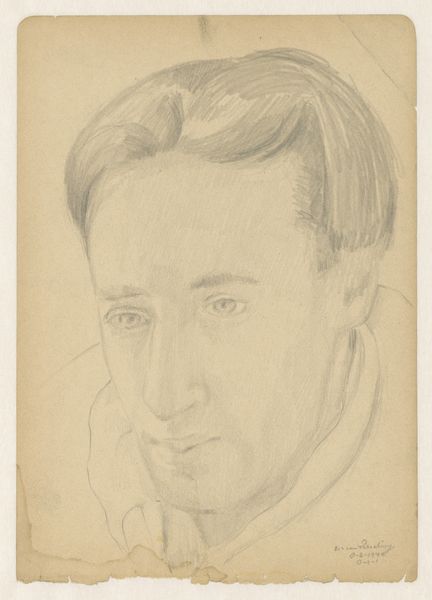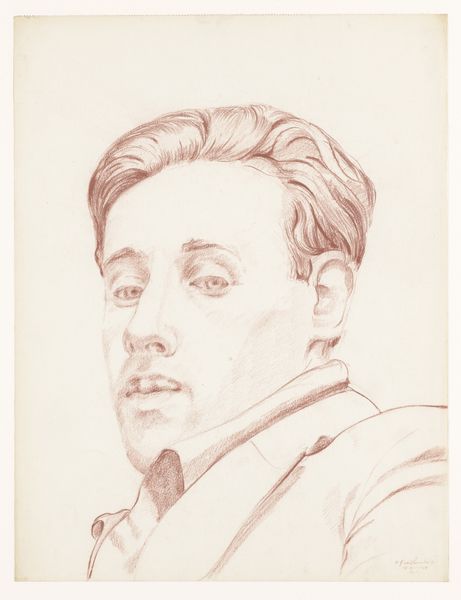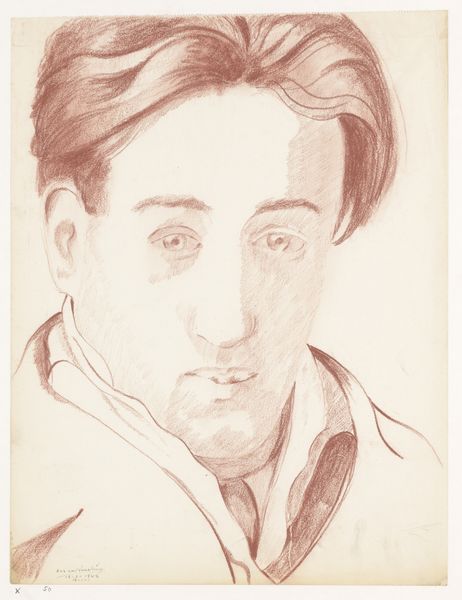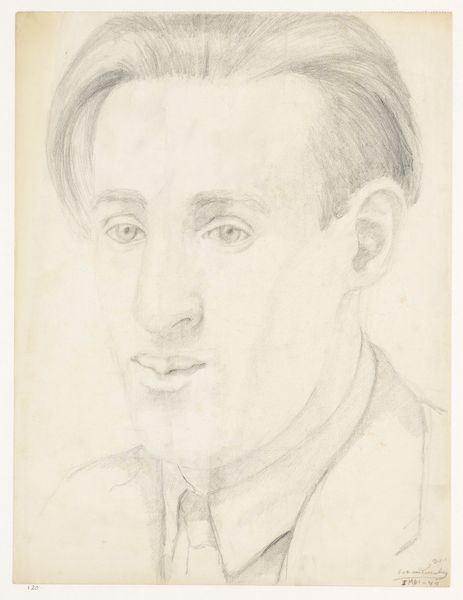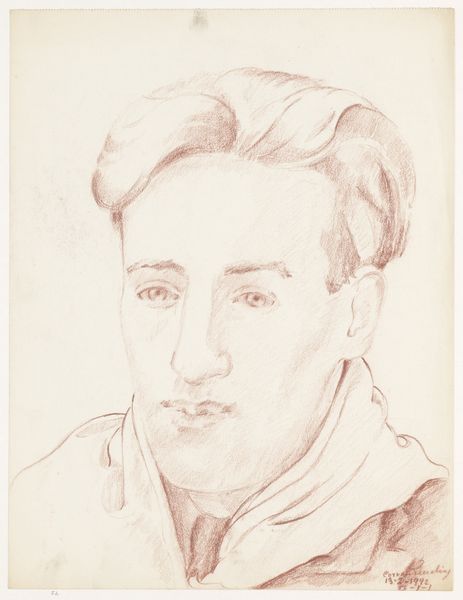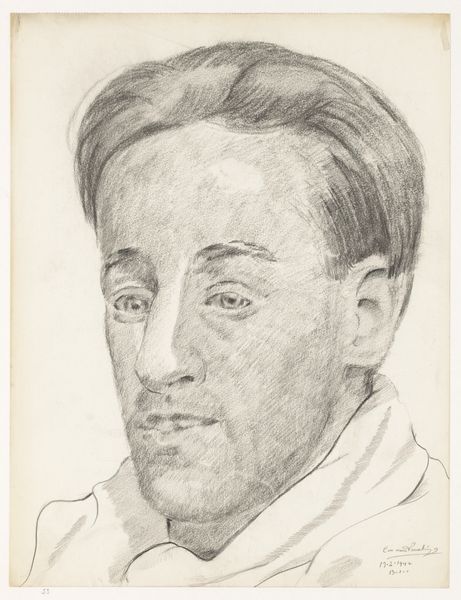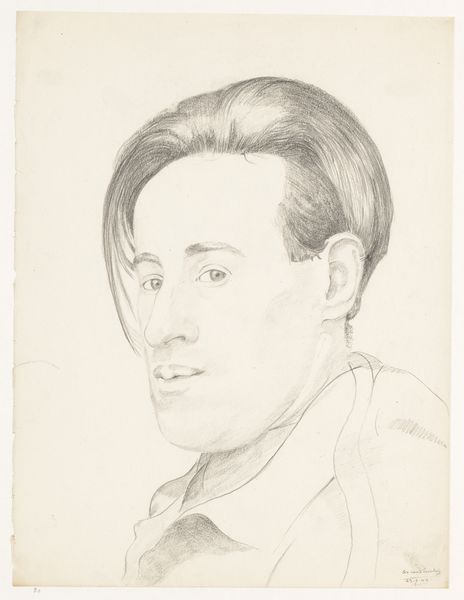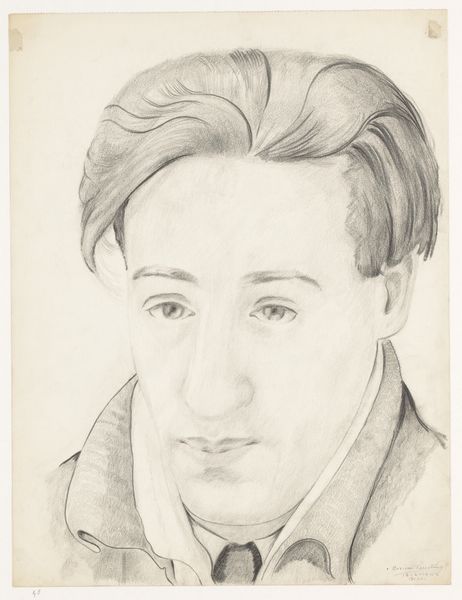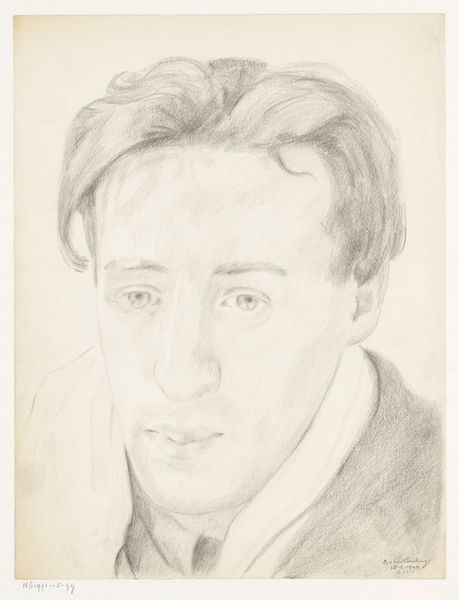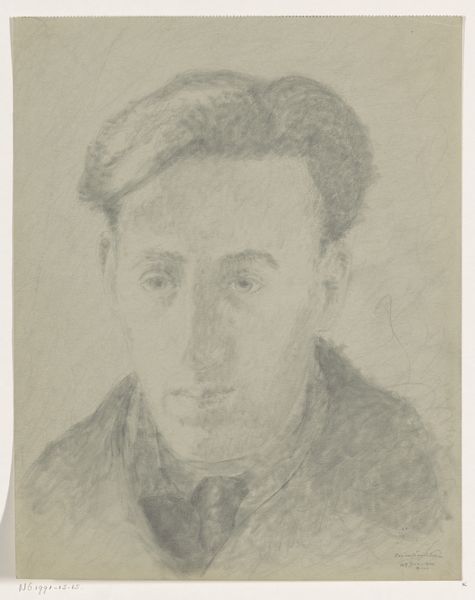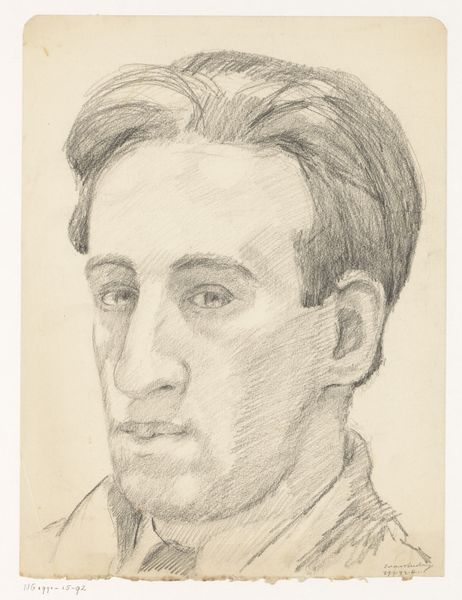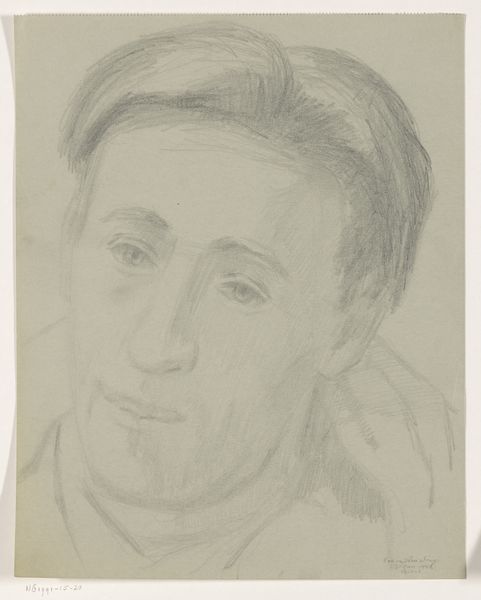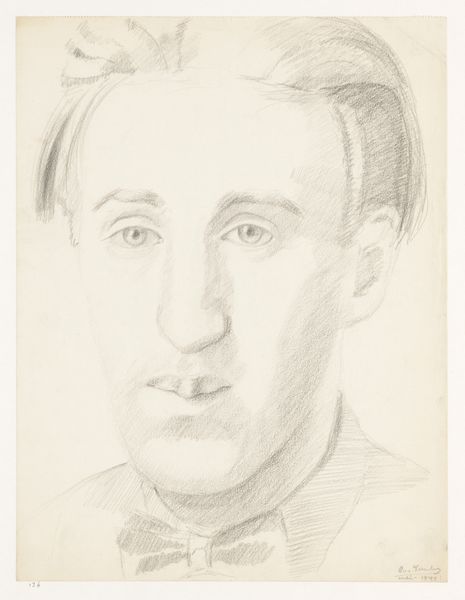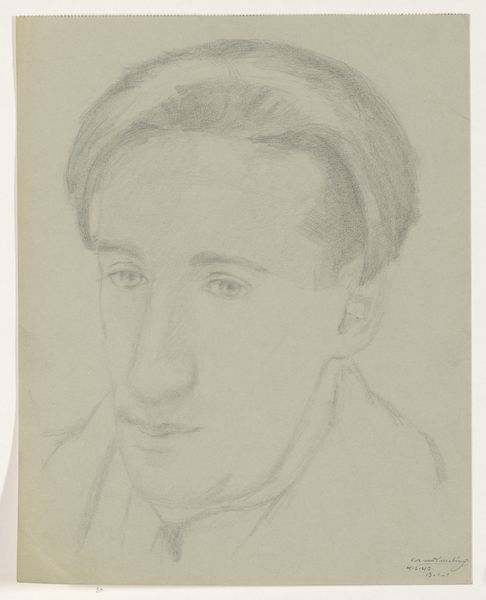
drawing, pencil
#
portrait
#
drawing
#
facial expression drawing
#
self-portrait
#
pencil sketch
#
portrait reference
#
pencil
#
animal drawing portrait
#
portrait drawing
#
facial study
#
facial portrait
#
portrait art
#
fine art portrait
#
realism
#
digital portrait
Dimensions: height 35.5 cm, width 27.0 cm
Copyright: Rijks Museum: Open Domain
Editor: Here we have Cor van Teeseling's "Self-Portrait: B-1-1, 13 February," potentially from 1942, a pencil drawing. The red chalk gives it a somewhat melancholic feel. What can you tell us about it? Curator: It's tempting to see this simple portrait as a reflection of the turbulent times. Consider the date – possibly 1942. The Netherlands were under Nazi occupation. A self-portrait during such a period becomes more than just an exercise in artistic skill. It's a statement of selfhood, a quiet act of resistance against erasure. What do you make of his gaze? Editor: He's looking slightly off to the side. Not confrontational, but very present. Curator: Precisely. And does that sideways glance speak to a kind of guardedness? Remember, identity itself became a battleground during the occupation. Artists like van Teeseling had to navigate a world where their very existence could be deemed subversive. How might that pressure have shaped his artistic choices? Editor: I guess a direct gaze could be seen as challenging. This feels more… introspective, almost like he's turning inward. It’s interesting how such a simple sketch can carry such weight. Curator: Absolutely. Think about the limitations he might have faced – scarce materials, fear of reprisal. The simplicity of the pencil and paper, the directness of the self-portrait, these become powerful choices. Does the historical context change how you view the work now? Editor: It really does. It’s no longer just a portrait, it is a reflection of personhood and resistance in a dark time. Curator: Precisely. The intersection of art and social history provides the richest narratives.
Comments
No comments
Be the first to comment and join the conversation on the ultimate creative platform.
